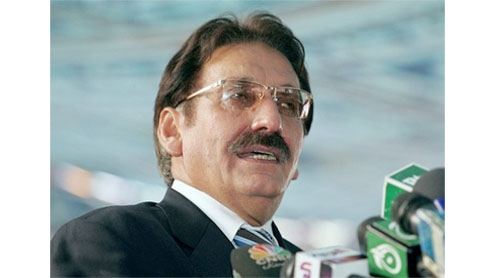
ISLAMABAD: The Supreme Court Wednesday sought a report from the federal government on how the Balochistan government was still operating despite the October 12 interim order, wherein it had been declared ‘failed’.
A two-member bench comprising Chief Justice Iftikhar Muhammad Chaudhry and Justice Jawwad S Khawaja heard the petition on Balochistan law and order situation and asked the federal government to explain under what constitutional authority the provincial government was discharging its functions.
The bench in its interim judgement, delivered on Oct 12, 2012 at SC’s Quetta Registry, had held that federal government had failed to protect Balochistan from internal disturbances and the provincial government had lost its constitutional authority to govern the province because of violation of fundamental rights of the people.
The CJP said that the Balochistan government had failed to enforce the constitution, adding that after the interim order, it cannot continue to spend funds from the national exchequer. “How is it [Balochistan government] still operating? It should have been dissolved,” he said.On the court’s orders, Balochistan Additional Advocate General Azam Khattak read out the interim order’s para 48, stating that the provincial government had failed in maintaining the law and order situation and protecting the lives and properties of its people, which is the principal constitutional responsibility of any set-up.The court order also stated that the provincial government could no longer be allowed to remain a silent spectator and directed it to adopt appropriate measures to end the sense of deprivation of the people of the troubled province.
Irfan Qadir argued that the government couldn’t be dissolved like this. Upon that, Justice Jawwad S Khawaja remarked that the AG had no authority to argue on this matter and the federal government should give an explanation. In the interim order the court had also directed Balochistan chief secretary and federal interior secretary to furnish fortnightly reports. Balochistan additional advocate general submitted a report on behalf of the provincial chief secretary, but the federal interior secretary failed to furnish any report.The bench expressed displeasure at this “lack of interest in the matter” on part of the federal government.
However, Attorney General Irfan Qadir gave an assurance that the report would be filed. The court said that he may do so and in the meanwhile he should also submit as to what steps, in terms of article 148(3), the federal government has taken after the interim order.In the October 12 order the SC had also said that the federal government had failed in providing assistance to the provincial government under article 148 (3) of the constitution as the federal government can intervene to assist the provincial authorities.
The attorney general said that a review petition had been filed against the interim order, arguing that the crime ratio in the Punjab was more than in Balochistan but the court remained worried about Balochistan. The chief justice said they were hearing the Balochistan case but if the AG felt so strongly about it he could bring up the Punjab case in court.Balochistan additional advocate general informed the court that the provincial cabinet was meeting ‘today’ (Wednesday) in Quetta; therefore, the hearing may be adjourned until Friday to enable him and the government to reply the question raised by the bench. On his request, the court adjourned the hearing until Nov 2.
In the interim order, the bench said although 432 Frontier Corps personnel had been killed, only the paramilitary force was held responsible for missing person’s issue. The court said that there was involvement of secret agencies in the province.The Supreme Court endorsed the decision of the high court regarding banned outfits. It said that the government was facing corruption allegations and it should take measures in this regard. During the hearing on that day, Justice Iftikhar said that the judiciary’s past decisions were now a part of history, adding that the institution would no longer protect any unlawful and unconstitutional measures. – PT











